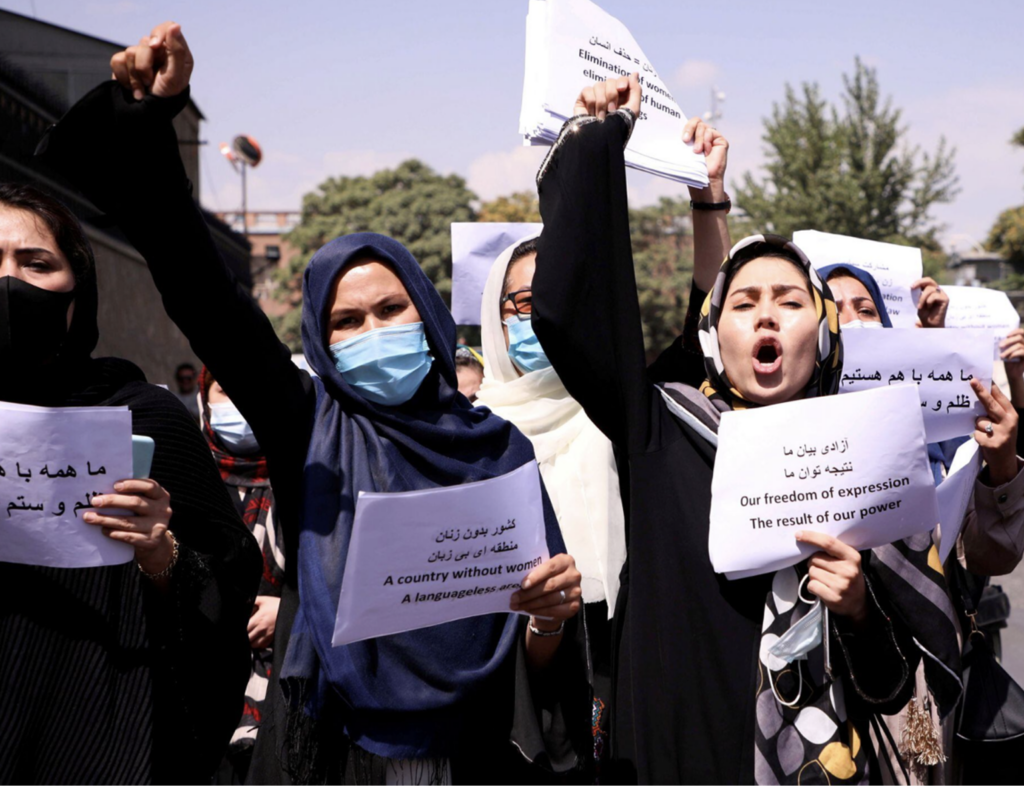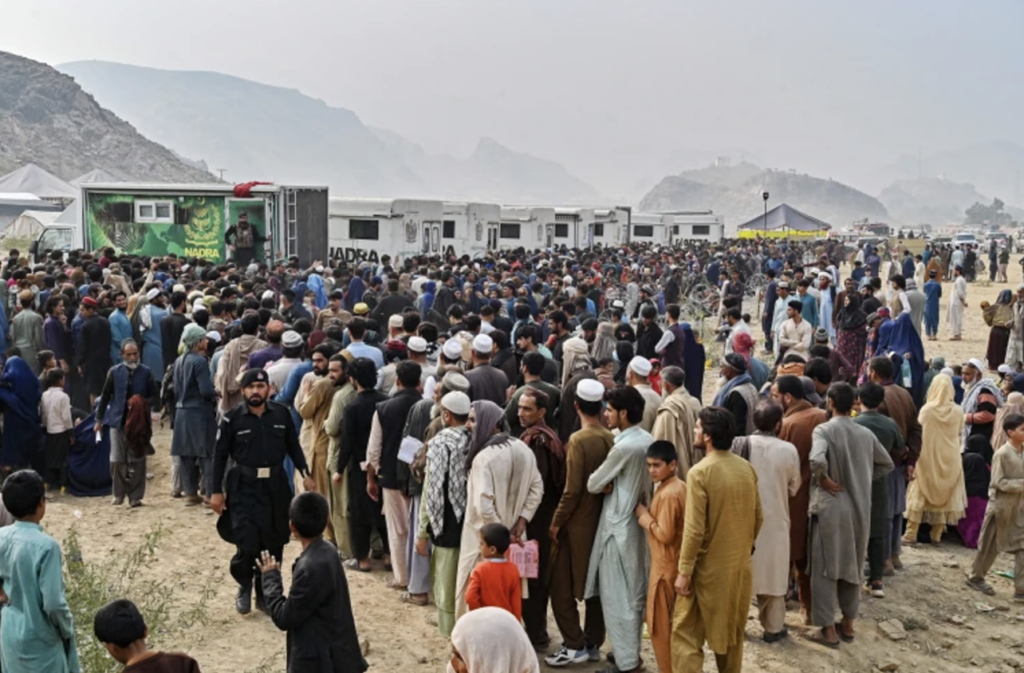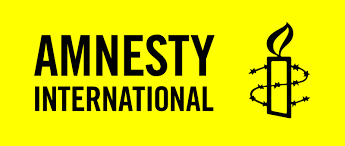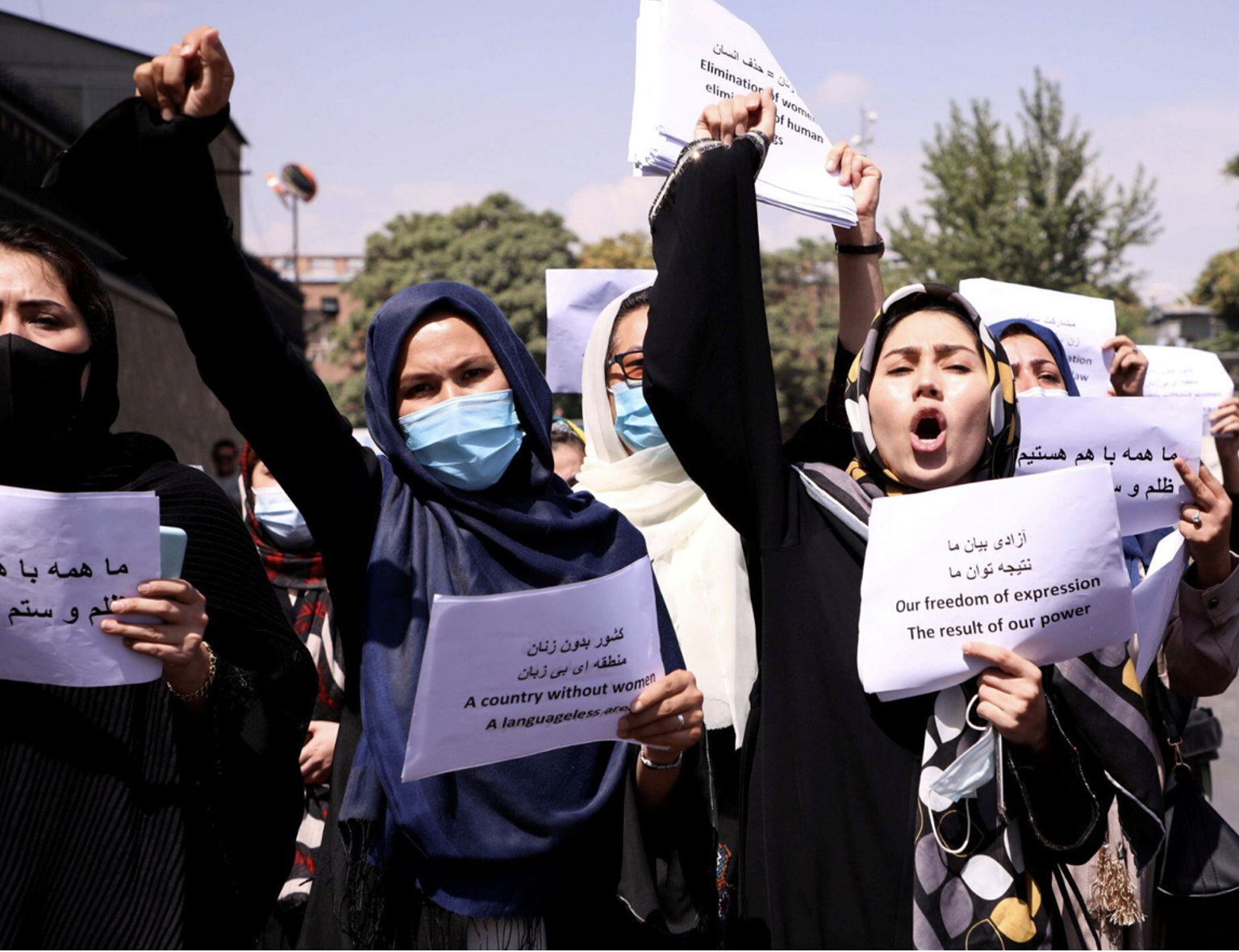Human Rights of Women in Afghanistan
AUTHOR: Thirsa Rzepka
The Alliance for Human Rights in Afghanistan made a joint statement on August 15, 2023. Hereby they condemned the ongoing and increasing human rights violations by the Taliban that particularly affect women and girls since the Taliban’s seizure of power in Afghanistan on August 15, 2021. Over the past two years, Taliban policies have become increasingly brutal, especially against women, girls and ethnic minorities. These include policies that deny and restrict women and girls access to education, employment and other livelihoods, freedom of movement and access to public spaces and services. This blatantly violates Afghanistan’s obligations under international human rights law.
Moreover, the UN Special Rapporteur on the situation of human rights in Afghanistan and the UN Working Group on discrimination against women and girls stated that the Taliban’s treatment of women and girls ‘’may amount to gender persecution – a crime against humanity – and be characterized as gender apartheid’’. Activists, especially Afghan women, who protest Taliban policies are at great risk when they speak out. Yet they persevere, despite the Taliban responding with physical violence, raids, arbitrary arrests, detention, torture and cruel, inhuman or degrading treatment, enforced disappearance and attacks on their family members.
In this regard, Amnesty International and the International Commission of Jurists also argue that the Taliban’s severe restrictions and unlawful suppression of the rights of women and girls in Afghanistan should be investigated as possible crimes under international law, including the crime against humanity of gender-based persecution. The joint report ‘The Taliban’s war on women: The crime against humanity of gender persecution in Afghanistan’ presents a detailed legal analysis of the Taliban’s restrictions on the rights of women and girls in Afghanistan. Combined with unjust imprisonment, enforced disappearances, torture and other abuses, these restrictions potentially constitute a crime against humanity of gender-based persecution under Article 7(1)(h) of the Rome Statute of the International Criminal Court (ICC). Amnesty International and the International Commission of Jurists believe that ICC prosecutors should include the crime against humanity of gender persecution in their ongoing investigation of the situation in Afghanistan.
Since the Taliban’s seizure of power, Afghan women and girls are forced to live as second-class citizens. For instance, women are no longer allowed to take on political roles and are excluded from most public sector jobs. In addition, women are also banned from attending school beyond primary education and are not allowed to continue their studies, limiting their professional opportunities. Moreover, women must also travel with a mahram, a male chaperone, when traveling longer distances. They must stay at home as much as possible and abide by the Taliban’s strict dress code. These matters violate women’s freedom of movement and women’s freedom to dress as they wish in public.
In addition, Afghan women and girls have been arbitrarily arrested and detained by the Taliban for so-called ‘‘moral crimes’’ for violating the discriminatory mahram restrictions, and for their participation in peaceful demonstrations. Women protesting against the offensive and restrictive measures faced excessive force, unlawful arrests, torture and other ill-treatment to force their cooperation. This led to violations of the right to freedom of expression, association, peaceful assembly and public participation.
These discriminatory restrictions the Taliban have imposed on women and girls violate human rights guarantees enshrined in various treaties Afghanistan has signed, such as the International Covenant on Civil and Political Rights, the International Covenant on Economic, Social and Cultural Rights, the Convention on the Elimination of All Forms of Discrimination against Women, and the Convention on the Rights of the Child.
In conclusion, the Taliban regime targets Afghan women and girls across the country based on their gender, potentially affecting every women and girl in Afghanistan. Amnesty International and the Commission of Jurists recommend that the UN Human Rights Council renews and strengthens the mandate of the UN Special Rapporteur on the human rights situation in Afghanistan. Moreover, urgent steps should be taken to establish an independent international justice process to investigate crimes under international law and other serious human rights violations. The Taliban should be held accountable for their crimes and the international community cannot allow to fail the women and girls of Afghanistan.


Sources (pictures):
https://www.nytimes.com/2022/01/24/world/asia/afghan-women-taliban-protests.html
Sources (text):
https://www.amnesty.nl/actueel/discriminatie-vrouwen-afghanistan-mogelijk-misdrijf-tegen-menselijkheid
https://www.amnesty.nl/content/uploads/2023/05/TALIBAN-WAR-ON-WOMEN_ICJ-AI-Afghanistan-Report_Final.pdf?x46282
https://www.amnesty.nl/actueel/afghanistan-de-taliban-verwoesten-de-levens-van-vrouwen-en-meisjes

